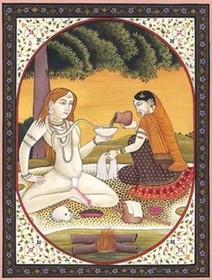 For today’s edition of NtHWS Extras, we’ll be covering a topic that’s been much in the news as of late: Cannabis laws.
For today’s edition of NtHWS Extras, we’ll be covering a topic that’s been much in the news as of late: Cannabis laws.
Ganja use plays a significant role in Now the Hell Will Start, as it did in the lives of thousands of American GIs during World War II. The book’s main character became a devotee of the substance during his time in northwest Burma, where there were few ways of salving the pain of jungle life. Soldiers were promised a case of lager every month, but the Army often failed to make good on its obligation. So the men would turn to tribal peddlers of ganja, who sold twists of the drug for as little as 70 cents.
Ganja cultivation flourished in the Patkai Mountains thanks to British indifference. Though the hill tribes could be fined for selling the drug in the Brahmaputra Plains, enforcement was lax. This was primarily due to the conclusions of the Indian Hemp Drugs Commission, a late 19th-century panel that investigated the consequences of cannabis consumption on the subcontinent. The commission’s study is celebrated among decriminalization advocates for concluding that “moderate use practically produces no ill effects, [and] in all but the most exceptional cases, the injury from habitual moderate use is not appreciable.” The British thus learned to object not to the drug’s use, but rather to the efforts of users to evade excise taxes.
The commission also opined on the futility of criminalization in India’s outlying regions, specifically the North-East where much of Now the Hell Will Start takes place. A simple cost-benefit analysis revealed that the raj had better things to do with its time:
It would be useless to prohibit the use of ganja in a province like Assam, surrounded as it is by independent hill people, who would cultivate it in their hills and smuggle it down with little risk of detection. Any prohibition will only lead to the increase of illicit consumption and to the secret use of the drug, which would be decidedly bad; of course, stop cultivation in Bengal, and the prohibition of the use of excise ganja could be enforced; but there would be serious discourse, though in this province it might not amount to a political danger, and the prohibition would be followed by recourse to opium, and in some cases to alcohol. The evidence of planters tends generally to show that the use of ganja by the garden coolies, who (except in the western districts of the Assam Valley and those of the Surma Valley, all of which border on Bengal) are the principal consumers, produces no serious effects. There is nothing in any of the Assam evidence to controvert these views.
It’s worth noting, though, that American GIs caught using cannabis during the construction of the Ledo Road were liable to be court-martialed and, in rare instances, committed to mental hospitals.


Like gas stations in rural Texas after 10 pm, comments are closed.